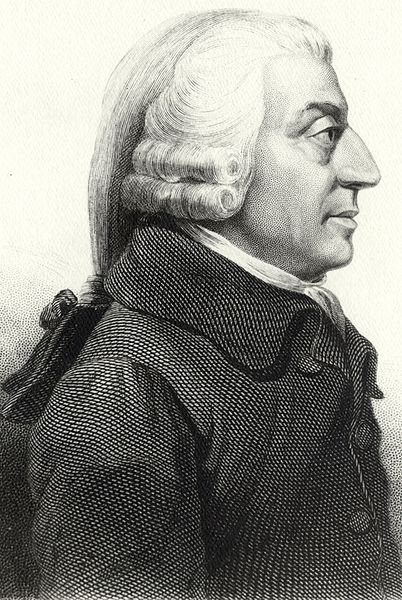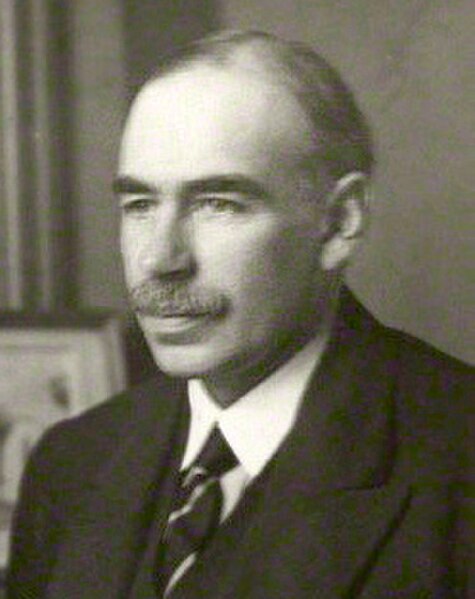Monetary economics is the branch of economics that studies the different theories of money: it provides a framework for analyzing money and considers its functions, and it considers how money can gain acceptance purely because of its convenience as a public good. The discipline has historically prefigured, and remains integrally linked to, macroeconomics. This branch also examines the effects of monetary systems, including regulation of money and associated financial institutions and international aspects.
Silver coin of the Maurya Empire, known as rūpyarūpa, with symbols of wheel and elephant. 3rd century BC.
The French East India Company issued rupees in the name of Muhammad Shah (1719–1748) for Northern India trade. This was cast in Pondicherry.
Economics is a social science that studies the production, distribution, and consumption of goods and services.
A 1638 painting of a French seaport during the heyday of mercantilism
The publication of Adam Smith's The Wealth of Nations in 1776 is considered to be the first formalisation of economic thought.
The Marxist critique of political economy comes from the work of German philosopher Karl Marx.
John Maynard Keynes was a key theorist in economics.






